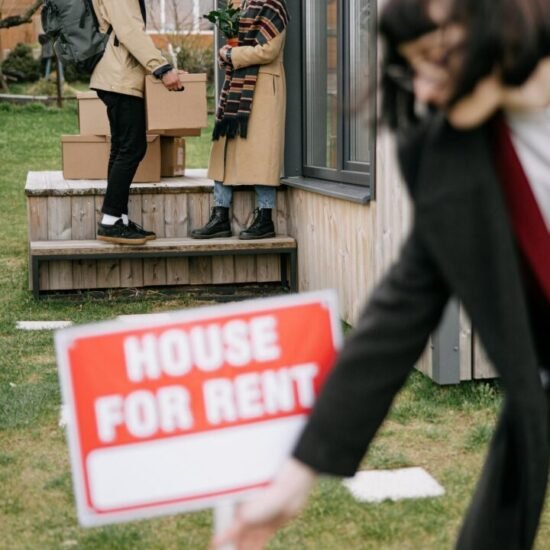85% instead, think it’s a bad time!
Persistently high housing costs could hurt President Joe Biden in the 2024 election, especially among young, liberal voters who have dropped out of the housing market or are struggling with high rents. Some progressive organizers say Biden and Democrats need to do more to address the issue or else they risk losing voter support from key voting blocs, including young voters and voters of color. “This housing crisis… is a sleeper issue. I hope our President will pay attention to this. I think he needs to send a signal to our people that hey, no, I’m concerned about this domestic issue. We have to figure it out,” said Damareo Cooper, co-executive director of the Center for Popular Democracy. Data on housing shows real misery these days. According to Gallup, only 21 percent of Americans think it’s a good time to buy a home, and 85 percent in a Fannie Mae survey think it’s a bad time to buy. Young voters feel that buying a home is as far out of reach as ever. Coupled with these economic headwinds, the President is in for a tough re-election battle, as he faces declining approval ratings and is trailing former President Donald Trump in the polls in a hypothetical contest between the two. If the President hopes to win in 2024, he will need to win support by large margins from young voters as well as Black and Latino voters. Cooper said talking about affordable housing could help reenergize groups whose support for the president has seen declines. Cooper said, “Thinking about next year’s election, it’s really going to be about whether or not the president can signal to people who are struggling with domestic insecurity … that he understands that issue and that Willing to take action on this.” Biden has emphasized the improving economy as he tours the country to promote his economic agenda, which he says has created more jobs and increased wages. While the President has said that food and gas prices are going down, housing costs continue to rise. Read Also: Hunter Biden faces federal firearms charges President Joe Biden delivers a speech on the US economy and “Bidennomics”. According to historical research from Goldman Sachs, his chances of re-election are strong as long as the economy does not enter a recession. Adam Schultz/White House Biden administration’s housing plan The Biden administration is working to address the issue, including launching a comprehensive housing supply action plan in October to increase the amount of affordable housing across the country. But the plan includes some proposals that would require congressional approval, including the Low Income Housing Tax Credit, which provides credits to private investors who develop affordable rental housing, and the Neighborhood Home Tax Credit. Biden also included investments in housing supply in his 2023 budget that would produce or rehabilitate another 500,000 homes. National economic adviser Lael Brainard also pressed Congress last week to pass the Neighborhood Homes Investment Act, which Biden included in his budget. “We’re using every lever we have to do this — legislative proposals, our administrative authority, our convening power and our bullying platforms,” Brainard said at the National Housing Conference last week. “Achieving the biggest improvements in supply will require Congress to act.” White House press secretary Karine Jean-Pierre said Thursday that “we still need to do a lot more work” to address housing concerns. Housing inflation continues to rise Americans’ sentiment about the housing market is reaching an all-time low. The Gallup survey according to which only 21% of Americans say it’s a good time to buy a home is the worst the survey has ever seen. According to the October 2023 Consumer Price Index released last month, housing costs rose 0.3 percent month-on-month and 6.7 percent from a year earlier. Home prices rose 4.5 per cent in September year-on-year and 0.3 per cent from the previous month, according to CoreLogic, a company that provides financial, property and consumer information and analysis. Additionally, Fannie Mae’s October Home Purchase Sentiment Index rose 0.4 points in October to 64.9. 85% of respondents said they believe it is a bad time to buy a home, and 40% said they believe home prices and mortgages will increase over the next year. Tenants are also feeling the pressure on their pocketbooks. Moody’s Analytics published research in May that found Americans are also spending about 30% of their income on rent. In 2021, at the height of the COVID-19 pandemic, 20 million renter households met the 30% income threshold and were “cost burdened,” according to a Census Bureau report published in March. Communities of color experiencing housing pain. Young Americans and communities of color have also seen rising concerns about inflation and housing. Housing has become one of the top five concerns for Latino voters, according to a poll released by Unidos last month. More than half – 54% – of respondents said inflation and the rising cost of living are their top concerns. A quarter of respondents said a lack of affordable housing and high rents were their top concerns. GenForward, which surveys adults aged 18-36, found that inflation was the top issue among respondents in a survey published last month. What was even more remarkable was that for the first time since polls began in 2016, all racial and ethnic groups reported inflation as their own, said Kathy Cohen, the David and Mary Vinton Green Distinguished Service Professor at the University of Chicago and founder of GenForward. Number one issue. “Everyone said the inflation was a little shocking,” Cohen said, adding that racism is typically the top concern among African American respondents. He said concerns about inflation are contributing to growing concerns over housing. “This generation, compared to other generations, carries a greater burden of both student loans and mortgage debt,” Cohen said. Rising home prices. Some Democrats are focusing on housing issues as voter concern about housing grows, some grassroots organizations and local Democrats are taking the issue into their own hands. Democrat Jed Leno, who is running for state Assembly in California, is focusing his campaign on expanding affordable housing and addressing homelessness. Leno said you can’t run for office in his state without focusing on affordable housing. “California is ground zero,” Lino said when talking about affordable housing, noting high levels of homelessness and high rent prices. “We are now at a massive turning point where everyone is ready to hear this, whether they themselves are housing stable or not.” Grassroots organizations are also getting ready to put pressure on Democrats to address the issue. Right to the City, a national coalition of more than 90 local organizations fighting for housing justice, is preparing a strategy for the 2024 election. Noemi Ramos, board member of the Right to the City Alliance Action Fund, said some allies are organizing at the local level, but there will be discussions about how to address housing at the national level. “It’s a roof over our heads,” Ramos said. “It’s where we live, where we work, where we play, where our families are raised, and it’s an issue on everyone’s mind. It’s very important for people to stay in their homes. It’s getting expensive.” The Center for Popular Democracy also launched a campaign called House Everyone, which focuses on expanding “green social housing stock” and funding for green social housing. The campaign also focuses on the safety of tenants. Cooper, who lives in Ohio, said the organization conducted listening sessions through 48 of its associates over the course of eight months to hear from voters what their top issues were. The organization then chose the top eight issues from the sessions and held a caucus to determine the issue that was of most concern. Housing came out on top. As part of the campaign, organizers are going to start door knocking in 2024 to focus on housing. The organization is also meeting with lawmakers on the issue, including Representative Ro Khanna, a progressive Democrat from California. “From the grassroots up, people in the community, they’re calling for it,” Cooper said. “Hopefully the administration will take note of this.”





Pingback: 21% think it’s a good time to buy a home (only!) – Proxima Bulletin: News & Info